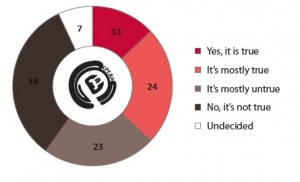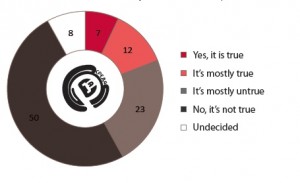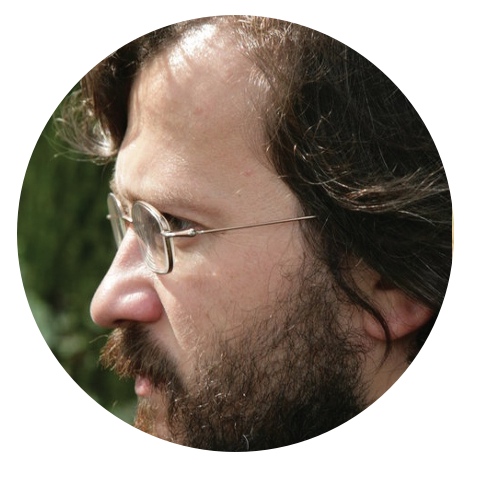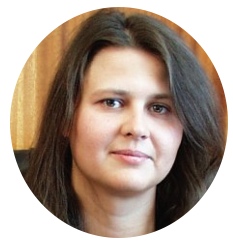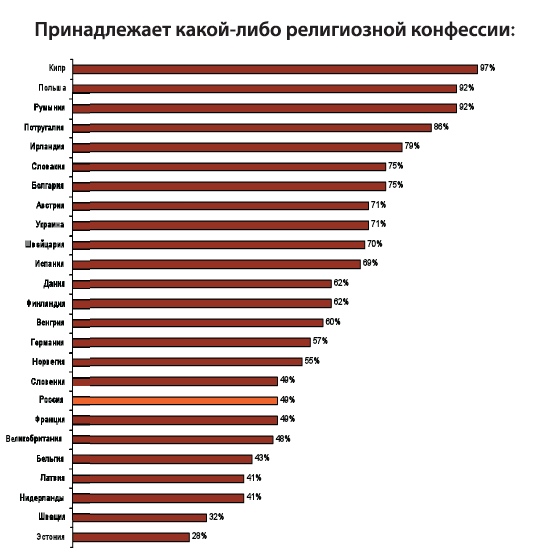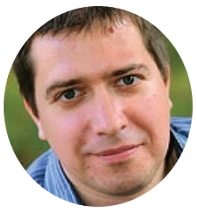Interest in Orthodoxy and demand for the spiritual education
09/16/2011The results of the All-Russian representative survey conducted by the service SREDA (field work: Public Opinion Foundation “PENTA”, sample 1500 people)
More than a third of Russians would like to broaden their knowledge about Orthodoxy. Among them, the majority are affluent people and respondents with higher education.
19% of respondents would like to receive additional spiritual education.
As for the Orthodox, half of the respondents would like to learn more about their faith, and one in four – to receive additional spiritual education.
Do you find the following statement true or false? “I would like to know about Orthodoxy more than I know at the moment.”
More than a third of Russians (37%) admit that they would like to know more about Orthodoxy. Women are more curious in this regard. Thus, a positive answer to the question was given by 43% of women and 29% of men. Men, on the contrary, were more likely to say they do not want to learn anything new about what was once the state religion of Russia (64% of men against 49% of female).
Those who want to learn more about Orthodoxy are more frequently those Russians whose activities are related to medicine and health, respondents employed in the field of science or education, as well as business managers, employees and high-resource citizens as per POF typology.
More than half of Russians (56%) do not want to add anything to their existing knowledge about Orthodoxy. Among them – the working class, as well as those who consider themselves to be ill or unhappy.
Less likely to wish to expand their knowledge about Orthodoxy are young people between 18 and 34 years. But respondents older than 55 years, by contrast, often spoke of their desire to learn more on the subject.
Level of education is closely linked with the results. Russians with higher education generally do not mind to learn more about Orthodoxy. Those who hold only a high school graduation certificate do not seek to broaden their knowledge, including that of Orthodoxy.
Those who would want to learn more about Orthodoxy mostly live in urban areas – cities with over one million people (but not Moscow). Less likely to seek this knowledge are rural residents.
Among those experiencing difficulty with choosing a definitive answer (‘undecided’) was a large proportion of poorer citizens.
With regard to the federal districts: desire to know about Orthodoxy mainly prevailed in Central Russia. Those who live in the Far East and Siberia often gave a negative answer.
And among the Orthodox Christians themselves, half of those surveyed say they would like to learn more about their religion. Among this group of respondents – active parishioners (59%) and those who attend Communion 1 – 2 times per year (56%).
Do you find the following statement true or false? “If I had the chance, I would like to receive additional spiritual education.”
Despite the fact that 37% of Russians would like to learn more about the Orthodox religion, only 19% of respondents say they would not mind getting additional spiritual education, if they had the opportunity.
Women, on this matter, are more likely to respond positively than men (22% women and 14% of men responded positively).
Additional spiritual education is more often appealing to respondents working in the field of medicine and health care (33%), citizens whose activities are connected with science and education (30%), superstitious Russians (28%) and respondents with three or more children (23%).
73% of Russians find additional spiritual education unnecessary. More often this is believed by the working class and those respondents who consider themselves unhappy or sick.
Age did not generally affect the responses, with only a couple exceptions: citizens over 65 were more likely to give a negative answer, naturally; and those aged between 25 and 34 often found it difficult to give a concrete answer (were ‘undecided’).
Educated respondents would not mind broadening their knowledge by receiving additional spiritual education.
Among respondents who would like to study a course of spiritual science – more often than on average these are residents from the Southern and Northern Caucasus federal districts (32%). Russian who say that they do not need additional spiritual education live more frequently in the Far East (88%), North West (80%) and Siberian (77%) federal districts.
A quarter of interviewed Orthodox Christians are willing to broaden their knowledge with additional spiritual education. In particular – active parishioners (37%), those who partake regularly (47%), as well as churchgoers who admit to some degree of superstition.


